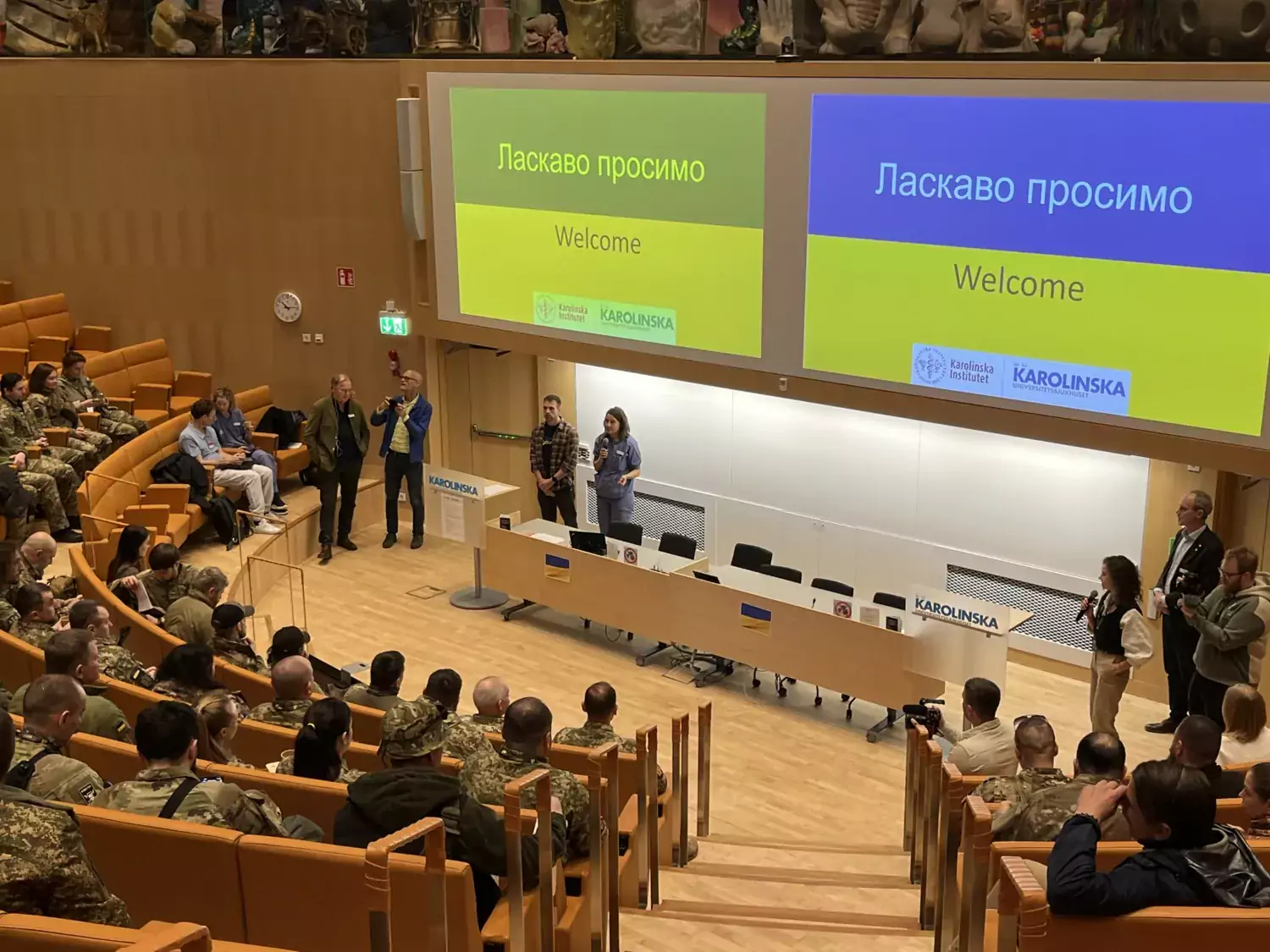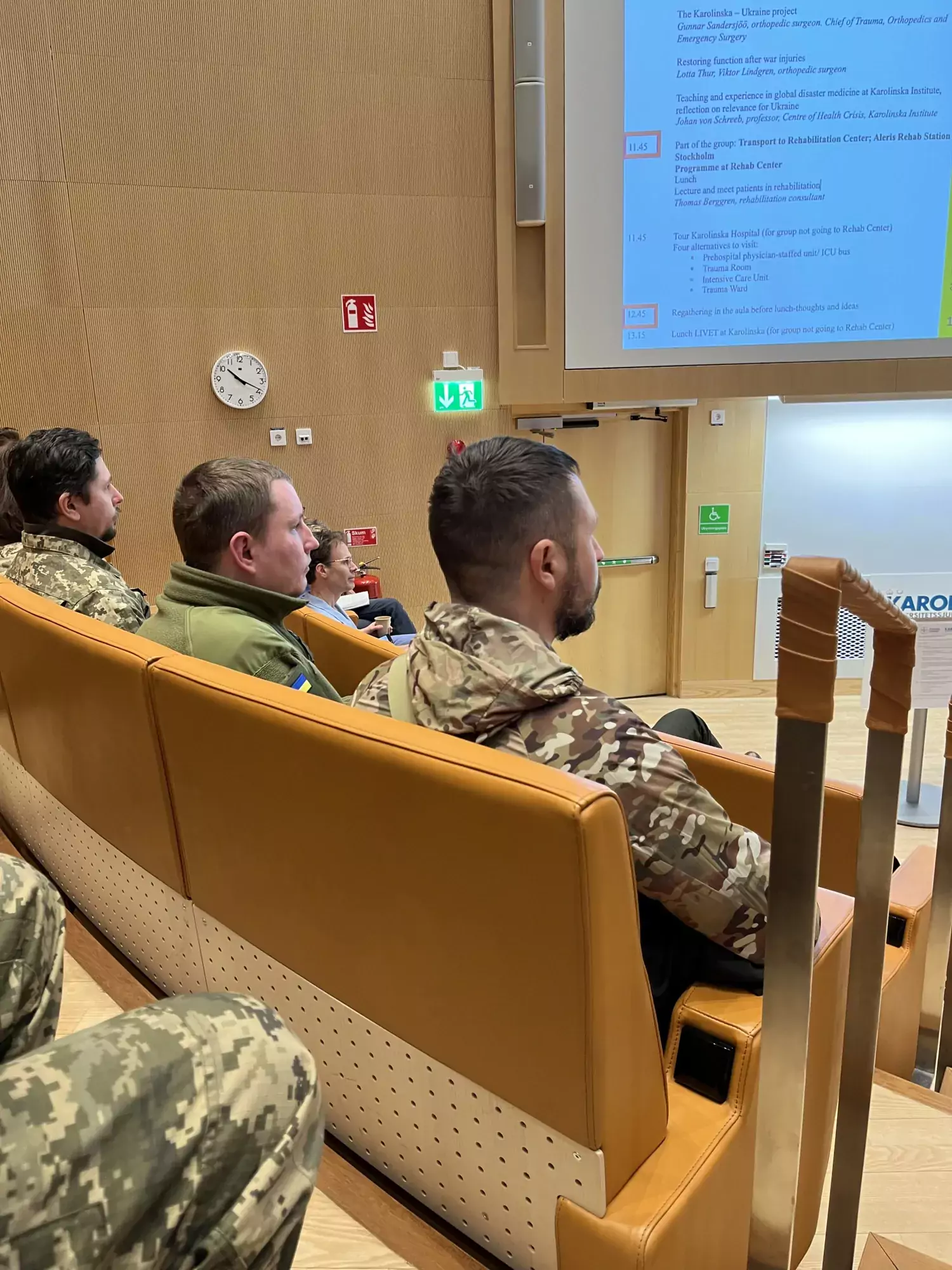An opportunity to learn from each other when 120 medics from the front line in Ukraine came for a visit

On Thursday, 28 March, the Sune Bergström auditorium at Karolinska University Hospital was filled with Ukrainian paramedics, when the hospital, together with the Centre for Health Crises at Karolinska Institutet, arranged a visit dedicated to the exchange of experiences, discussions, and guided tours.

The Ukrainian paramedics work in different roles, but what they all have in common is that they work on the front line, constantly exposed to the enormous pressure that the war creates. It was the Ukrainian volunteer organisation Repower that works to support and empower front line medics, that enabled them to come to Sweden for a week for recovery and support, but also for study visits, such as the one to Karolinska University Hospital.
How the treatment and rehabilitation of Ukrainian soldiers works
After first being welcomed by hospital director Partrik Rossi, Gunnar Sandersjöö took over and talked about the project Karolinska University Hospital has been running since Russia's full-scale invasion in February 2022, together with partners in the EU and in Ukraine, to receive and treat Ukrainian patients.
- "We focus on describing the reasons why we at Karolinska are helping Ukraine during the ongoing war, and more specifically what we do with the injured Ukrainian soldiers we are entrusted to treat," Gunnar said just before the day began.
The description of the care of injured Ukrainian soldiers became even more detailed when orthopaedic surgeons Lotta Thur and Viktor Lindgren took over and described the care, surgery and aftercare for a number of patients. This also provided an opportunity for questions and discussions about experiences and challenges in treatment and rehabilitation.
The group was then split up for guided tours of different parts of the hospital, and a visit to Aleris Rehab Station where they got to meet Ukrainian soldiers who are currently being rehabilitated for their war injuries in Stockholm.
Afterwards, Bohdan Kostyantyn, sanitary instructor in the Territorial Defence Forces, summed it up with these words:
- "We saw interesting case studies of treatment and rehabilitation of our soldiers.
The role of universities and lessons for Sweden from Ukraine
The visit concluded with Johan von Schreeb, Director of the Centre for Health Crises at Karolinska Institutet, talking about the role of universities and the importance of gathering and building knowledge in war and crisis. Together with Lisa Strömmer, surgeon and expert coordinator in emergency surgery at the centre, they then held an exchange of experiences where the Ukrainian medics shared what they have learned during the war and what they think Sweden could benefit from knowing.
- 'We have a lot to learn from each other. In Sweden we have an incredibly highly specialised healthcare system, but we have a lot to learn from our Ukrainian colleagues when it comes to handling mass casualties, how to provide healthcare in war, how to conduct evacuations, and how to provide good care with limited resources. By learning from our Ukrainian colleagues, we can improve our own preparedness," says Lisa.
The visit ended with a joint lunch and the exchange of many contacts to continue learning from each other.
